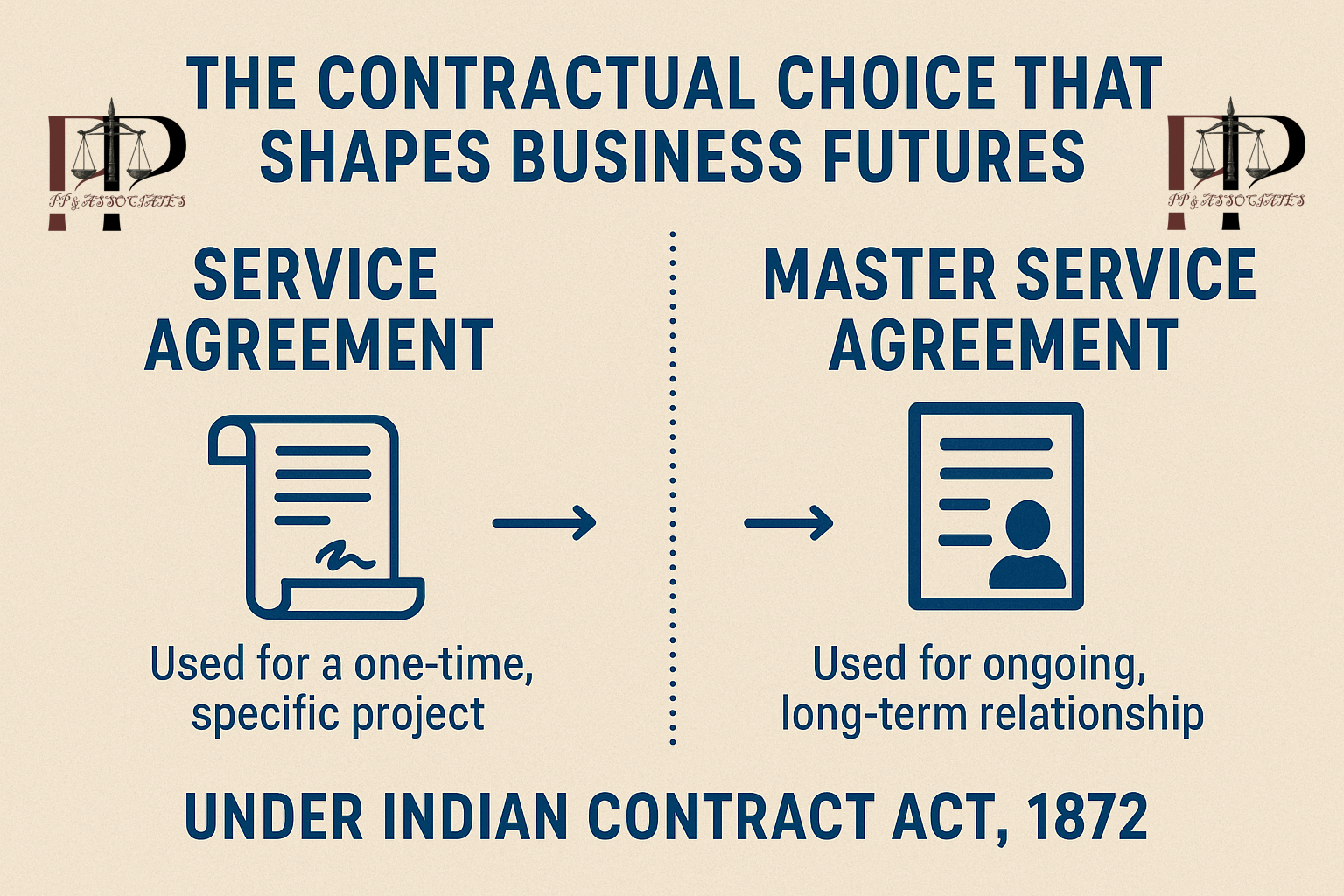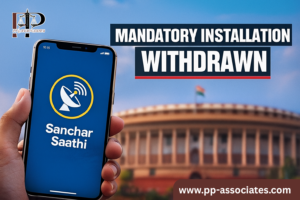The Contractual Choice That Shapes Business Futures: Service Agreement or MSA?
Under the Indian Contract Act, 1872, every contract carries weight, but not all contracts serve the same purpose. Businesses in India often find themselves confused between a Service Agreement and a Master Service Agreement, and while on paper they may appear similar, in practice, the distinction is vast and critical. A Service Agreement is usually entered into for a one-time, specific project. It is a self-contained contract where the scope of work, timelines, deliverables, and payments are set out in detail. Once the service is rendered and the obligations discharged, the agreement comes to a natural conclusion. This reflects the doctrine of privity of contract, where the rights and liabilities exist only between the parties to that specific transaction. Each new project requires a fresh negotiation and drafting exercise, consuming time, money, and resources.
By contrast, a Master Service Agreement, or MSA, is foundational in nature. It is not drafted to close out a single transaction but to govern a broad, long-term relationship between the parties. The MSA lays down the overarching framework on issues such as confidentiality, intellectual property rights, dispute resolution mechanisms often under the Arbitration and Conciliation Act, 1996, limitations of liability, indemnities, and governing law. Instead of reopening these negotiations every time, the parties simply execute shorter project-specific Statements of Work, or SOWs, that plug into the MSA and detail only the commercial aspects like pricing, deadlines, and the precise tasks. This reflects the doctrine of freedom of contract, giving parties autonomy to create an efficient structure that saves time and ensures clarity.
For businesses in industries such as IT services, consultancy, professional outsourcing, or any sector where the same client engages the service provider repeatedly, an MSA is transformative. Without it, companies find themselves negotiating the same terms again and again, often with variations that create contradictions across different agreements. Disputes later arise when one contract says something different from another. An MSA eliminates this risk, ensures consistency, and drastically speeds up the initiation of new projects. It reflects not just legal drafting but the doctrine of consensus ad idem, ensuring that the parties are always aligned on the essential legal framework, while only varying on the commercial specifics from project to project.
Both Service Agreements and MSAs are enforceable under Section 10 of the Indian Contract Act, which lays down what constitutes a valid contract, but their legal utility differs. Service Agreements are conclusive in themselves, while MSAs are continuing frameworks that breathe life into multiple SOWs over time. Courts in India often invoke the doctrine of business efficacy, holding that contracts must be interpreted in a manner that makes business sense. Seen through this lens, MSAs are superior for relationships that are not one-off but continuous, since they provide the business efficacy of clarity, speed, and reduced cost. For companies, the decision is not academic but strategic. If you expect a single engagement with no likelihood of repetition, a Service Agreement suffices. If you expect multiple projects over a period of time, an MSA is essential. At PP & Associates, we have observed how companies that failed to adopt MSAs often faced unnecessary disputes and delays, while those with well-structured MSAs enjoyed smooth long-term partnerships and scaled their operations without being hampered by repetitive negotiations. The lesson is clear: a Service Agreement ties you down to the present, while an MSA grows with your business into the future. The choice, therefore, is not whether to sign a contract but whether you want your contracts to be transactional or transformational.






